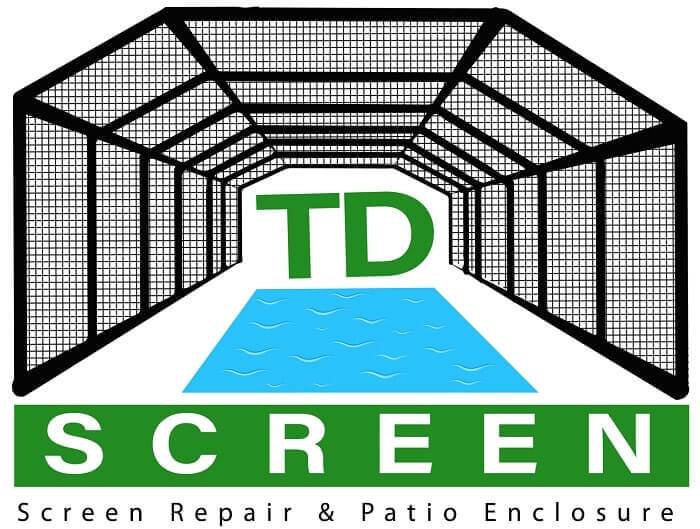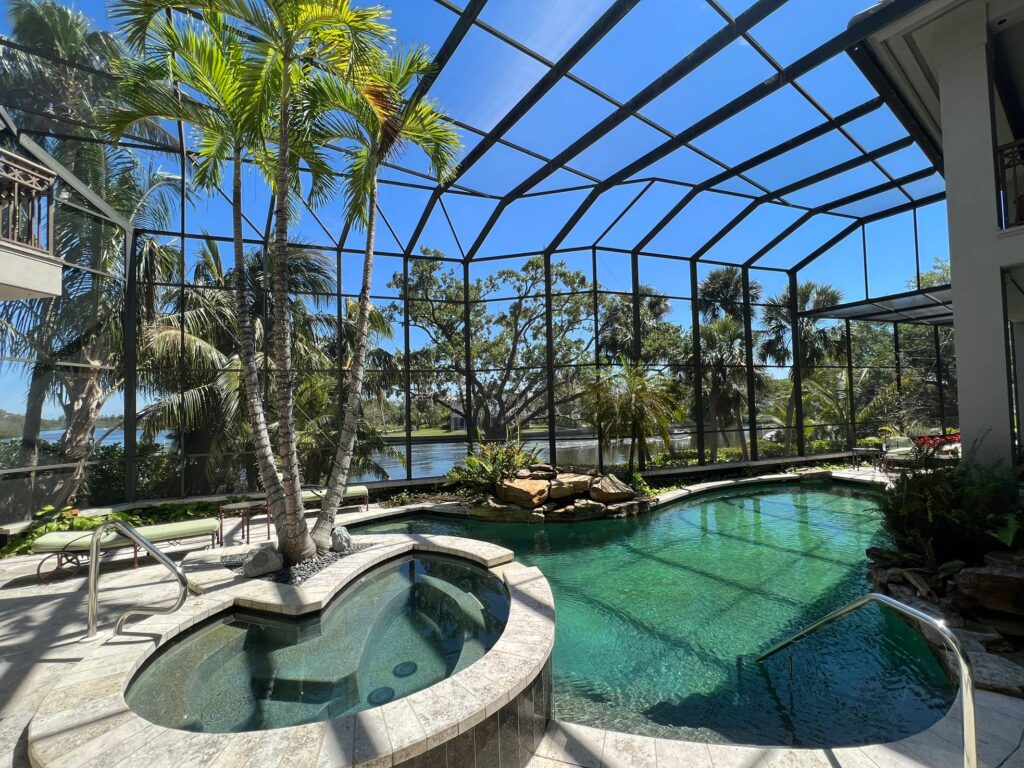Types of Screens: Pick the Right One For Patio Screen Repair
Patio screen repair can make a big difference in the comfort and atmosphere of your home. When choosing the right material for your patio screen repair, there are several factors to consider, including ventilation, weather conditions, transparency, and durability. Here are five popular types of screens and the advantages and disadvantages of each:
Considerations for Choosing a Patio Screen Repair Material
Before purchasing new screens, evaluate the area they will occupy. Not all materials are suitable for all environments, and wear and tear can impact the longevity of your screens:
- If you want to maximize natural airflow, choose a screen material that allows for good ventilation. Some bug screens offer larger mesh sizes while still providing protection against pests.
- If you live in a coastal area, consider a material that is resistant to water and corrosion. On the other hand, if you live in a windy environment where flying debris is a problem, Tuff screens may be a better choice for their durability.
- If you want to increase natural light and visibility, look for a material that is highly transparent. This will allow more light into the room and reduce the visual barrier between the interior and exterior of your home.
1. Pet Screen Screen Repair:
Pet screens are designed to withstand the rough treatment that pets may inflict. The type of pet screen you choose will depend on the size of your pet and the damage they may cause. Popular pet-resistant options include Pet Screens, Tuff Screens, and Super Screens. Additionally, screen protectors and heavy-duty pet doors are available to provide further protection.
Advantages:
- Made from tougher and more durable materials to withstand pet scratches and pushing
- Designed to fit into existing frames
- Matches the rest of your home’s décor
- Can be used for windows, doors, patios, and other enclosures
- Resistant to the sun and other elements due to PVC vinyl lining
Disadvantages:
- Although puncture and tear-resistant, it may still damage the frame if a pet runs into it with enough force
- Effective in reducing frequent replacements, but not completely indestructible
2. Fiberglass Screen Screen Repair:
Fiberglass is a popular material for patio screen repair because it is lightweight and resistant to rust and corrosion. It is a cost-effective option for window screens and can be easily sized for various purposes.
Advantages:
Industry standard and most cost-effective option
Highly flexible and easy to alter
Widely available in different weaves and applications
Disadvantages:
- Not the strongest material for window screens
- Prone to stretching, ripping, and fading over time
- May be easily torn by sharp objects in areas with storm debris
3. Waterproof Screen Screen Repair:
This type of screen is perfect for porches that need protection from blowing rain. Waterproof screens turn your porch into a three-season room, providing a dry and comfortable space to enjoy the outdoors.
Advantages:
- Protects your porch from blowing rain
- Increases the functionality of your porch space
Disadvantages:
- May not be necessary for all environments
- Requires additional installation steps such as installing an awning or rain awnings.
4. Solar Screen Screen Repair:
Solar screens block the sun’s rays and reduce heat and glare. They are made of a dark-colored mesh material that helps to keep interiors cool, reduce energy costs, and increase privacy. Solar screens can also improve the look of the home and increase property value. The disadvantage of solar screens is that they can obstruct the view and reduce natural light.
Advantages of Solar Screens:
- Cost-effectiveness: Solar screens are one of the most affordable options available in the market.
- • Privacy: Solar screens provide privacy during the day, but they may not be effective at night when interior lights are turned on.
Disadvantages of Solar Screens:
- Aesthetic impact: Solar screens may not add to the overall aesthetic appeal of your neighborhood.
- Reduced natural light: The screens may reduce natural light entering your home, making it darker and requiring more artificial lighting.
- Health effects: Decreased natural light levels have been linked to reduced levels of mood- enhancing hormones like serotonin and endorphin.
- Storm damage: Solar screens may not fit as tightly as factory-installed window screens and can be susceptible to damage from storms.
5. Aluminum Screen Screen Repair:
Aluminum is a durable and long-lasting material that is resistant to rust and corrosion. It provides a clear view and allows for ample ventilation. However, aluminum screens can be more expensive than other materials.
Advantages:
- Durable and long-lasting
- Resistant to rust and corrosion
- Provides a clear view and ample ventilation
Disadvantages:
- More expensive than other materials
In conclusion, when selecting the best material for your patio screen repair, consider the environment, your needs, and preferences. Whether you have pets, want to maximize natural light and airflow, or protect against rain, there is a material that is right for you.”
You can get a free quote from TD Screen when you’re ready for your next patio screen repair.

